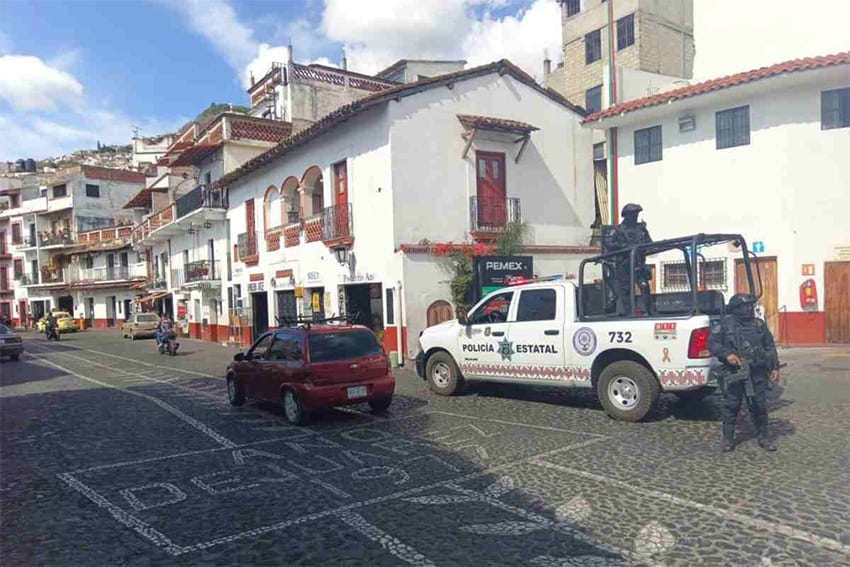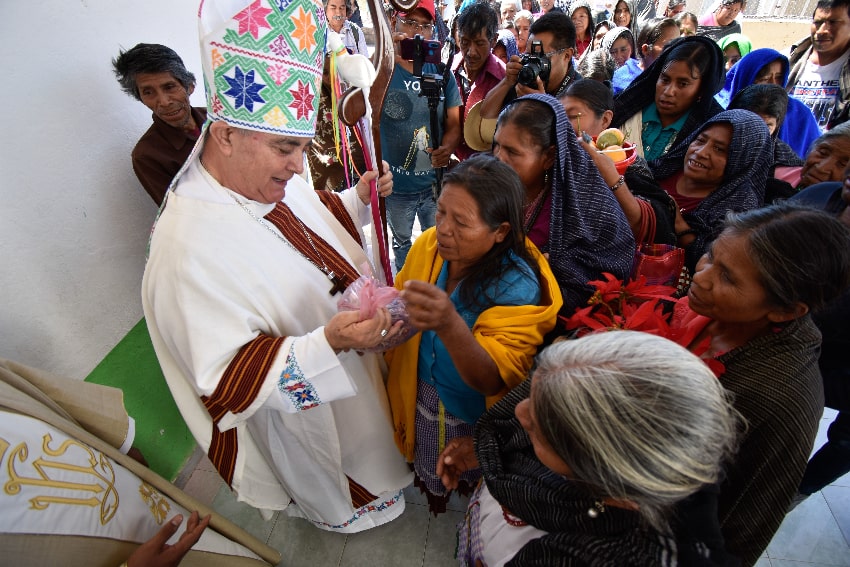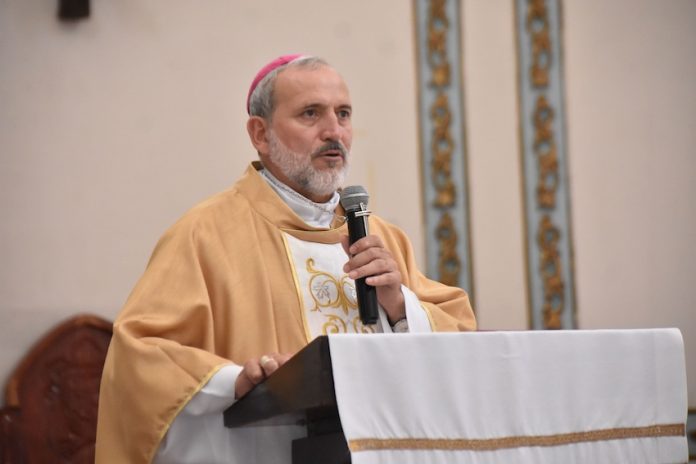Should bishops be engaging in dialogue with violent criminals? President Andrés Manuel López Obrador, for one, doesn’t see anything wrong with it.
“Priests and pastors and members of all the churches … help with the pacification of the country. I think it’s very good, we all have to contribute to achieving peace, but of course the responsibility lies with the state,” he said Thursday morning.

His remark came after Bishop José de Jesús González Hernández told reporters on Wednesday that he and the three other Catholic bishops in the state of Guerrero have all met separately with criminal leaders.
They were seeking a statewide truce between feuding criminal groups, but they were unable to achieve one, said González, bishop of the Chilapa-Chilpancingo diocese.
He explained that the criminal leaders were unwilling to give ground and as a result no agreement could be reached over which groups would have criminal control over different parts of the southern state. The capos have “a desire for money” and “a desire for power,” González said, further explaining why the quest to obtain a truce failed.
Guerrero was Mexico’s seventh most violent state in 2023 in terms of total homicides with 1,688, according to data presented by the federal government last month. The majority of murders are linked to organized crime. Various parts of the state are plagued by security problems including the capital Chilpancingo, the magical town of Taxco, the hurricane-battered city of Acapulco and the notoriously violent Tierra Caliente region.

González — who said in 2022 that he hoped to cultivate a friendship with criminal groups and indicated that he would be prepared to give his life while mediating between feuding narcos — has followed in the footsteps of his predecessor, Salvador Rangel, by engaging in dialogue with instigators of violence in Guerrero. He said that he and the other Guerrero bishops would continue to do so.
While he expressed his support for such dialogue, López Obrador declared that it wasn’t acceptable for the talks to lead to “agreements that mean granting impunity, privileges and licenses to steal.”
Speaking in Acapulco at his morning press conference, he also said that the federal security presence in Guerrero is stronger than it has ever been.
“There must be about …29,000 members of the army, the navy and the National Guard. That has never been seen before in Guerrero,” López Obrador said.

Xóchitl Gálvez, presidential candidate for the three-party opposition alliance Strength and Heart for Mexico, took a very different view, asserting Thursday that the federal government has “abandoned” Guerrero.
“It abandoned the people of Acapulco” after the powerful Hurricane Otis devastated the city last October, she said.
“[Organized] crime is controlling [public] transport in Taxco, Chilpancingo and Iguala. What Guerrero is going through every day is a tragedy,” said Gálvez, who is currently in Europe and met with Pope Francis on Thursday.
The senator-turned-presidential candidate said that “it’s sad that today the church has to negotiate with organized crime, given that it, unfortunately, is the de-facto authority in Guerrero.”
Gálvez said that she understood what the bishops were trying to achieve, but described meetings with narcos as “very dangerous for them and for all residents of Guerrero.”
“I think it’s incredible that the president says that he agrees,” she added.
With reports from El Sur, Reforma and El Universal
